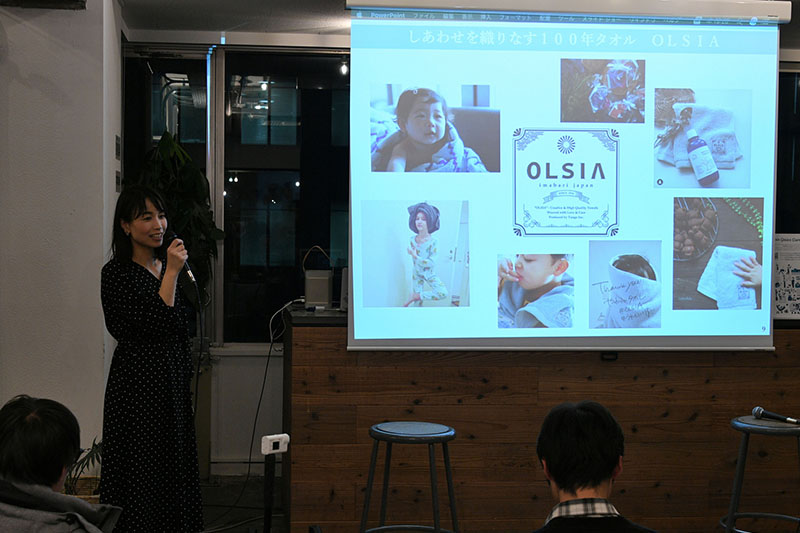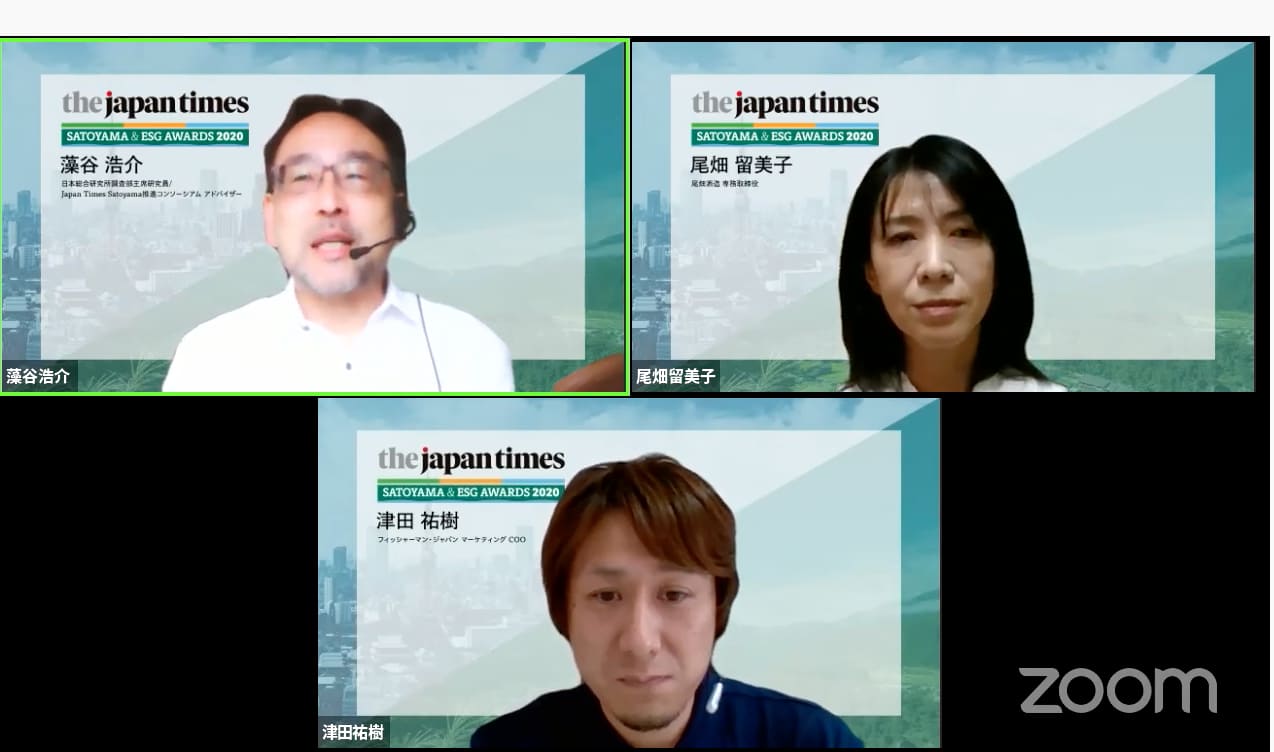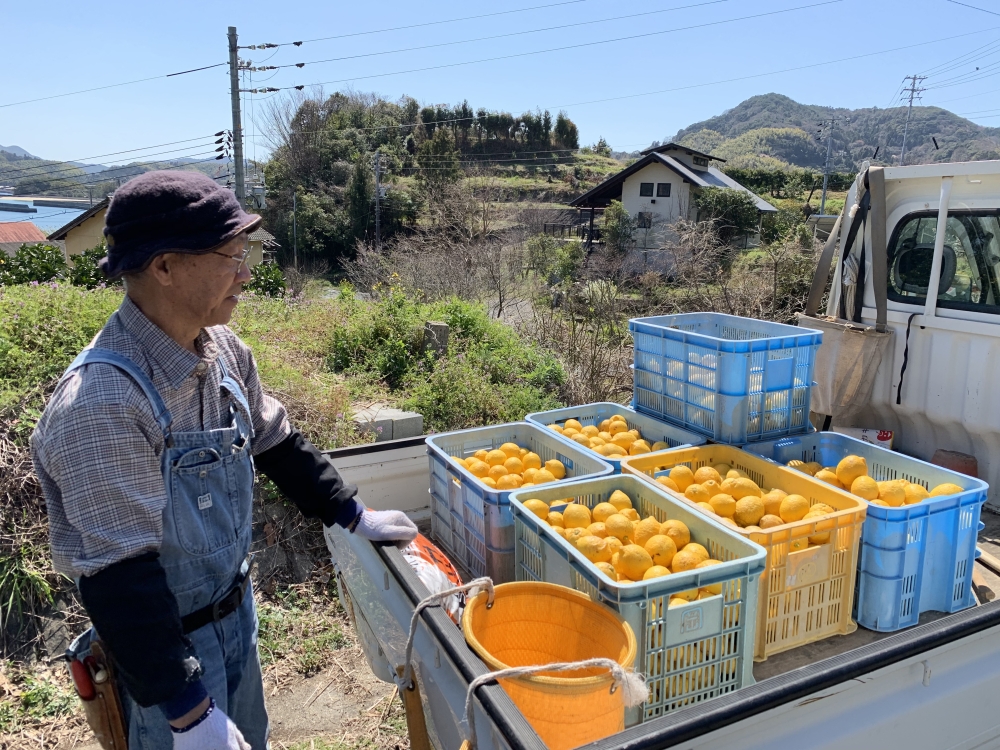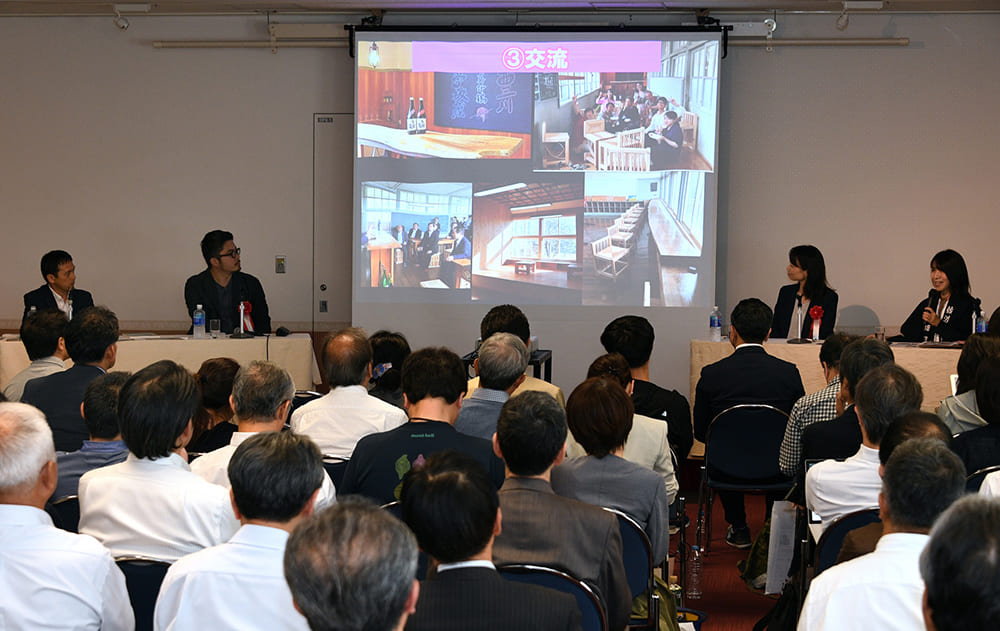May 05, 2019
Clean start for long-standing towel business

The city of Imabari in Ehime Prefecture has for over 120 years been one of Japan’s major towel manufacturing hubs. Kayo Tango and her husband jumped into the world of towel production three years ago to save a towel manufacturer in the process of shutting down due to the lack of a successor. She spoke about their endeavors to revive the towel manufacturing business at the ninth Satoyama Cafe on April 11 in Tokyo.
The talk was co-hosted by the Japan Times Satoyama Consortium, the Chiiki Ouen (regional support) Bash community organization established by Gaiax Co. and Ouen Fes. The consortium aims to support efforts that make effective use of satoyama (mountains and woods tended by residents of the adjacent communities) in rural areas.
Many businesses in rural areas like Imabari, where specific industry clusters have long survived, are owned and succeeded by family members. Tango’s case is an exception.
Now mother to both a five- and eight-year-old herself, Tango was born and raised in a small town next to Imabari. “Just like many young people who were born in the countryside, I chose to leave my hometown to go to university,” she said.
After graduating from university and working as an elementary school teacher in Hyogo Prefecture, Tango returned to Imabari to marry her husband. He had taken over real estate and insurance companies from his parents, family-run businesses that had been operating for 60 years.
It was the same town that she wanted to escape when she was younger, but “My husband and I came to really appreciate the connections with, and support from the community in running our real estate and insurance businesses, and we started to think how we could give something back,” Tango noted.
One day, they learned that a nearby established towel manufacturer was preparing to close down. Running a real estate agency in a rural aging community, Tango and her husband had met many elderly business owners who made decisions to shutter their businesses and sell or lease their properties because they had no successors. The towel manufacturer owner was one such case.
“It was an over 90-year-old company that we had known of for a long time. We just couldn’t let it disappear. So we asked if we could take over the towel business,” Tango said. At first the owner declined, insisting that they should not take on such a burden. As the firm had already begun preparations to close down, neither clients nor sales remained.
However, the owner eventually agreed, on the condition that they rename the company.
“I think it was due to his fatherly kindness that he wanted us to start afresh,” Tango said. They named the company Tango Inc. and appointed Tango’s husband as representative director and Tango herself as director. They restarted the towel business using several experienced workers who had worked for the previous owner. The workers’ average age was 68.
“We wanted to preserve their skills and old looms. Although more high-tech machines are available nowadays, only the hands of experienced workers can produce works of a particular style and superb quality,” Tango said.
However, with no clients to sell to, they could not simply start making towels.
“I had no experience in towel manufacturing, sales or marketing. Without any knowledge, I just did everything I could think of,” Tango said. She visited department stores, sent out emails to magazines and launched an online shop.
She talked with and wrote to people to express the company’s passion for preserving traditional towel manufacturing methods and the quality of their products. Her efforts led to an increase in fans for their towels.
Tango and her husband named their brand Olsia, the term a play on the Japanese words for “weave” and “happiness.” Olsia towels are now sold at various department stores across the country, appear in magazines and can be found on the internet.
“The workmen who had been making towels on a strict original equipment manufacturer basis until we took over the company were amazed and proud when they saw a photograph of their towels in a stylish magazine,” Tango noted.
The number of staff working at Tango has increased to 20. There are now several younger employees who are learning skills and techniques from the veteran workers.
“I want our company to become a workplace where young people want to work,” Tango said with a smile.

















